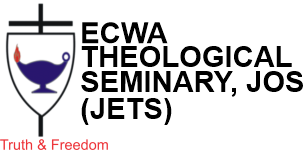Beyond Timbuktu : an intellectual history of Muslim West Africa / Ousmane Oumar Kane.
By: Kane, Ousmane [author.].
Material type: BookPublisher: Cambridge, Massachusetts : Harvard University Press, 2016Description: 282 pages ; 25 cm.Content type: text Media type: unmediated Carrier type: volumeISBN: 9780674050822.Subject(s): Islamic learning and scholarship -- Africa, West -- History | Islamic learning and scholarship -- Mali -- Tombouctou -- History | Education -- Africa, West -- History | Education -- Political aspects -- Africa, West -- History | Africa, West -- Intellectual life | Africa, West -- Civilization -- Islamic influencesDDC classification: 966.0088/297
BookPublisher: Cambridge, Massachusetts : Harvard University Press, 2016Description: 282 pages ; 25 cm.Content type: text Media type: unmediated Carrier type: volumeISBN: 9780674050822.Subject(s): Islamic learning and scholarship -- Africa, West -- History | Islamic learning and scholarship -- Mali -- Tombouctou -- History | Education -- Africa, West -- History | Education -- Political aspects -- Africa, West -- History | Africa, West -- Intellectual life | Africa, West -- Civilization -- Islamic influencesDDC classification: 966.0088/297 | Item type | Current location | Collection | Call number | Status | Date due | Barcode |
|---|---|---|---|---|---|---|
 Books
Books
|
Doctoral Library Staff Office | Special Collections | PhD. DT474.5 .K36 2016 (Browse shelf) | Not For Loan | 1043823 |
Browsing Doctoral Library Shelves , Shelving location: Staff Office , Collection code: Special Collections Close shelf browser
| No cover image available | |||||
| PhD. DT474.5 .K36 2016 Beyond Timbuktu : | PhD. BP64.A4W3 .T75 1962 A history of Islam in west Africa | PhD. BP64.N6 S43 2014 Sects & social disorder : | PhD. BR479 .S7155 2018 Christianity in the twentieth century : |
Includes bibliographical references and index.
Timbuktu studies: the geopolitics of the sources -- The growth and political economy of Islamic scholarship in the Bilad al-Sudan -- The rise of clerical lineages in the Sahara and the Bilad al-Sudan -- Curriculum and knowledge transmission -- Shaping an Islamic space of meaning: the discursive tradition -- Islamic education and the colonial encounter -- Modern Islamic institutions of higher learning -- Islam in the post-colonial public sphere -- Arabophones triumphant: Timbuktu under Islamic rule.
"By 2013, many people worldwide had heard about Timbuktu as a center of learning where thousands of Arabic manuscripts are preserved, some of which were destroyed by fanatics during the French counteroffensive to halt the expansion of Islamists in Mali. But few people know that Timbuktu was only one of many centers of Islamic learning in precolonial West Africa. This book analyses the rise and transformation of Arabo-Islamic erudition in West Africa from the beginning of the spread of Islam through the colonial period to the twenty-first century. It highlights the contribution of Muslim scholars in the production and transmission of knowledge and in shaping state and society in West Africa. It argues that no study of the history of education or knowledge production in West Africa will be complete unless it pays attention to this intellectual tradition. The book further shows how European colonialism obstructs historiography so that we know so little about it. Finally, the book analyze the transformation of West African educational system, in the twentieth and twenty first century and shows that far from declining, the Islamic tradition of West Africa has gained vitality in the postcolonial period."-- Provided by publisher.

There are no comments for this item.